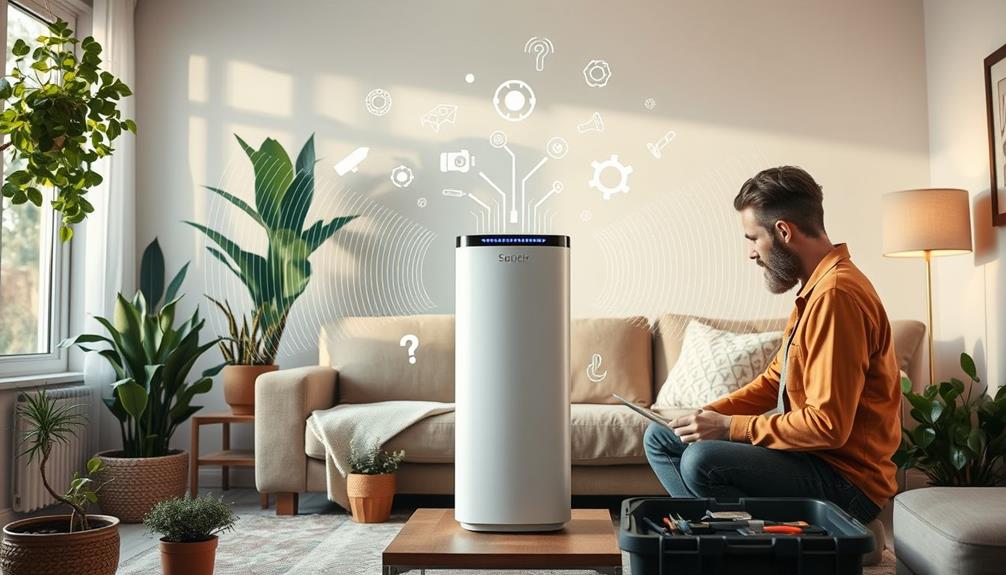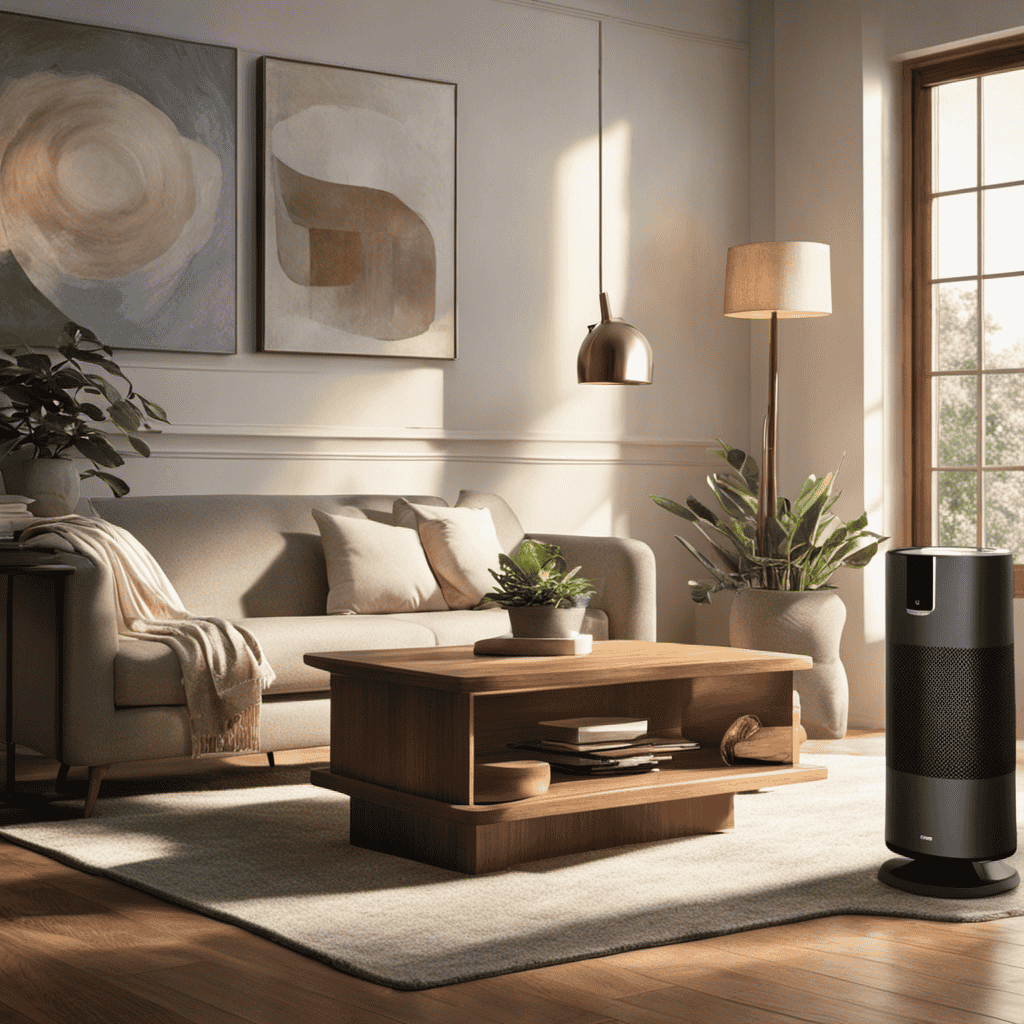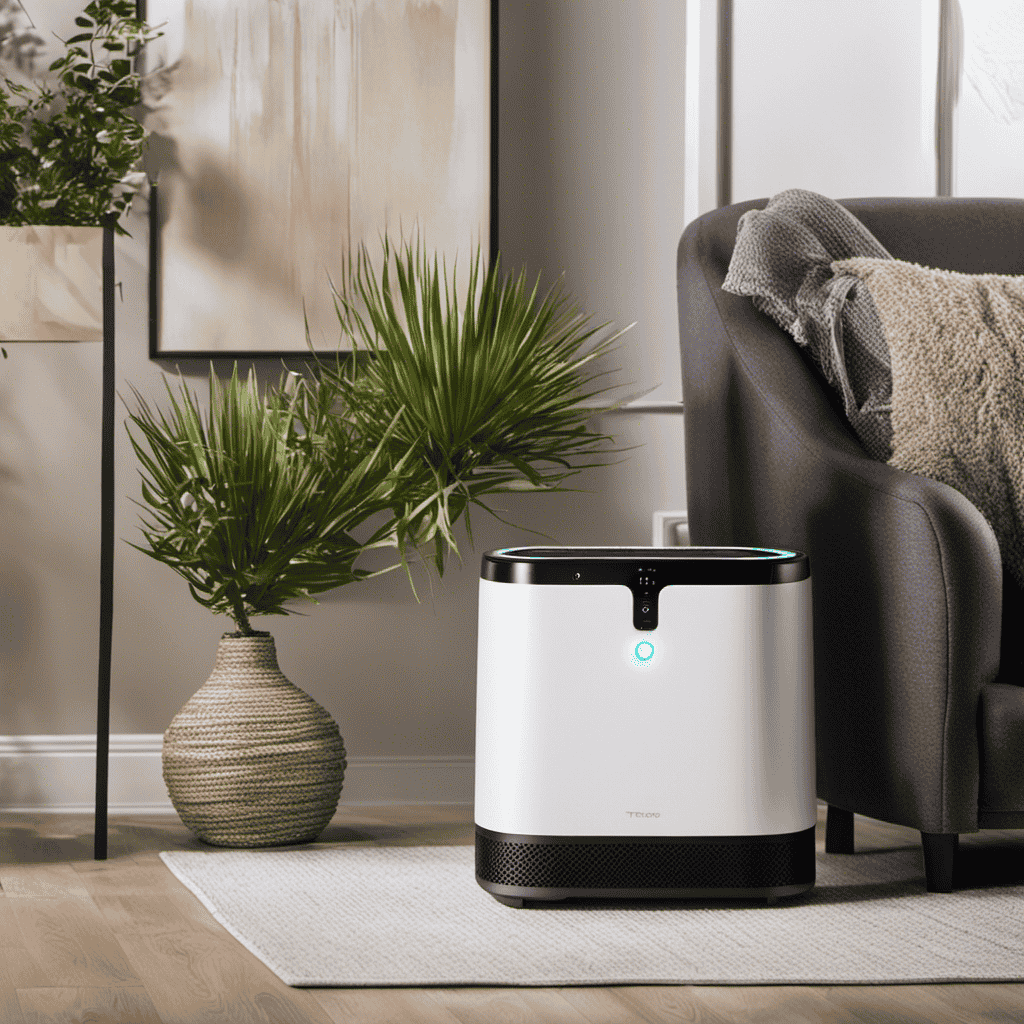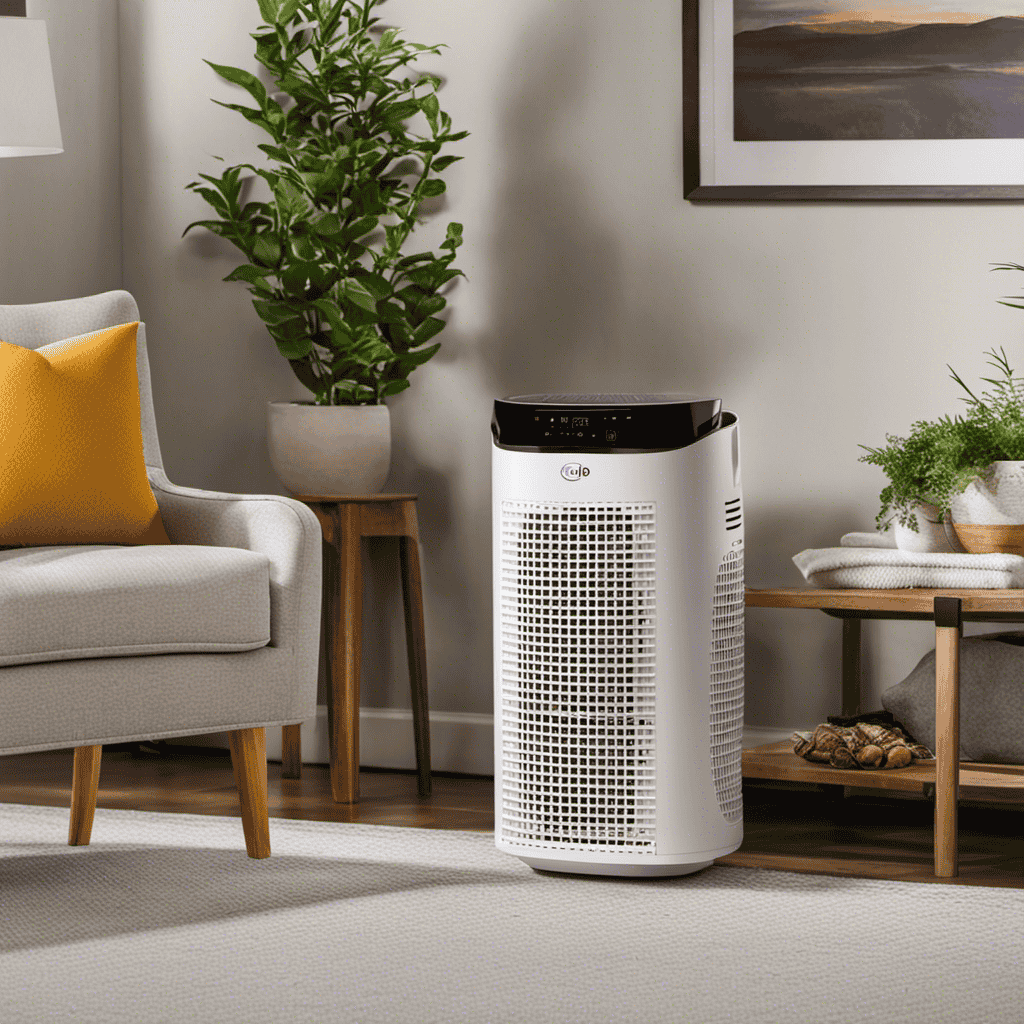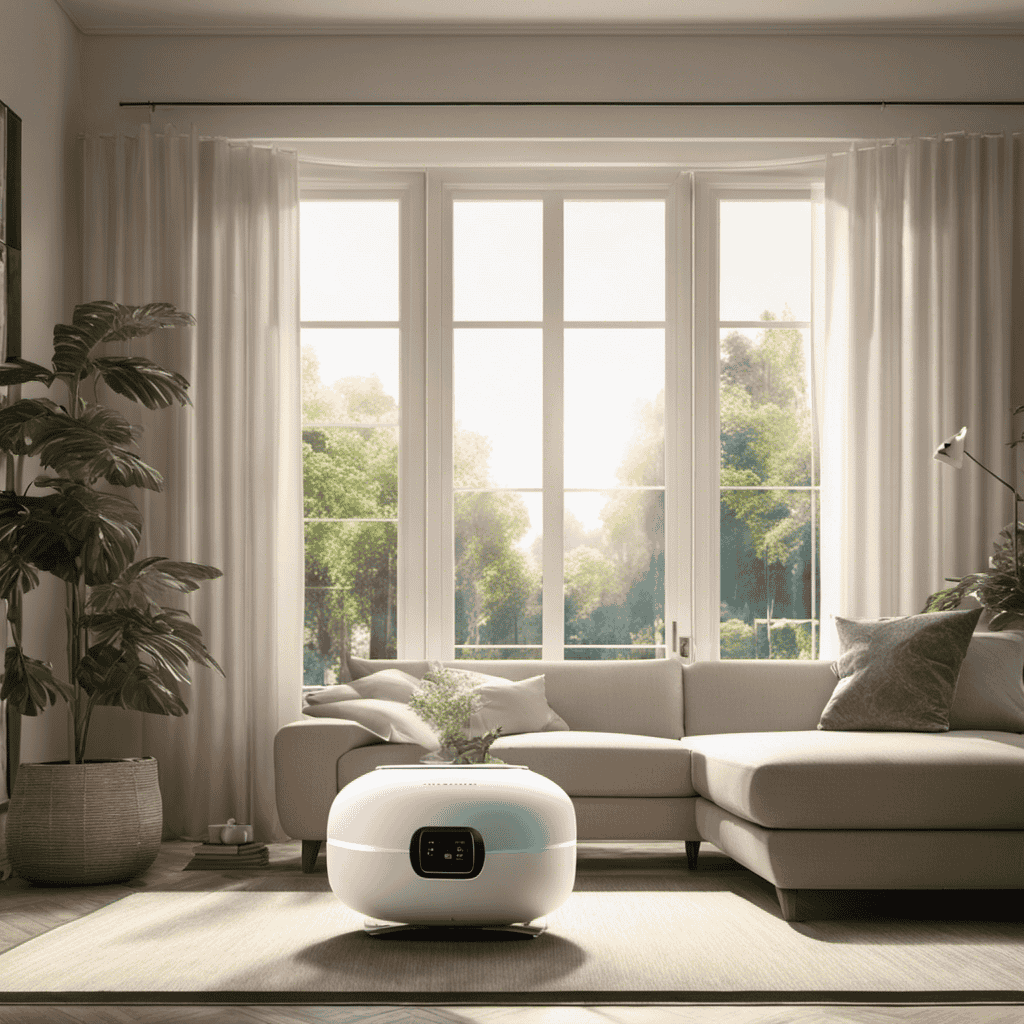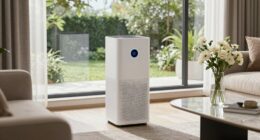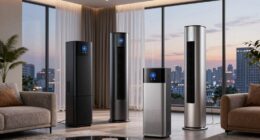If you hear strange noises coming from your air purifier, it's important to address them quickly. Common sounds include high-pitched whirring, rattling, or static, often indicating issues like clogged filters, loose parts, or motor problems. Start by checking and replacing filters, cleaning fan blades, and tightening any loose screws. If the noise persists or is unusually loud, you might need to consult a professional. Regular maintenance is key to keeping your purifier quiet and effective. Discovering more about specific noises and their solutions can keep your air cleaner and your peace uninterrupted.
Key Takeaways
- Identify the noise type: high-pitched sounds may indicate fan blade issues; rattling suggests loose parts or debris.
- Check and replace clogged filters to prevent static noises and ensure optimal airflow.
- Clean fan blades monthly to reduce dust buildup, preventing increased noise levels and vibrations.
- Tighten loose screws and components regularly to eliminate rattling and promote quieter operation.
- If loud noises persist, seek professional help to assess potential mechanical or electrical issues.
Types of Air Purifier Noises
Air purifiers can produce a range of noises, each with its own implications for performance and maintenance. Understanding these noise levels is crucial for guaranteeing your unit runs smoothly.
For instance, the white noise generated by fan operation is typically normal and can even help you sleep better. However, if you notice high-pitched sounds, it might indicate issues with the fan blades or other internal components that require immediate attention. Regular maintenance, such as checking filters for clogs, is essential for peak performance and can help reduce unwanted noises regular maintenance guarantees peak performance.
Static noises can signal clogged filters or electrical wiring problems, prompting you to check for maintenance needs.
Rattling sounds often arise from loose parts or debris inside the unit, which can hinder performance; regular checks can help you address this. Humming is generally an acceptable operational sound associated with the motor, so you shouldn't worry too much about that.
Yet, if you hear more disruptive noises like banging, it could suggest significant internal damage or malfunction.
Common Noise Causes
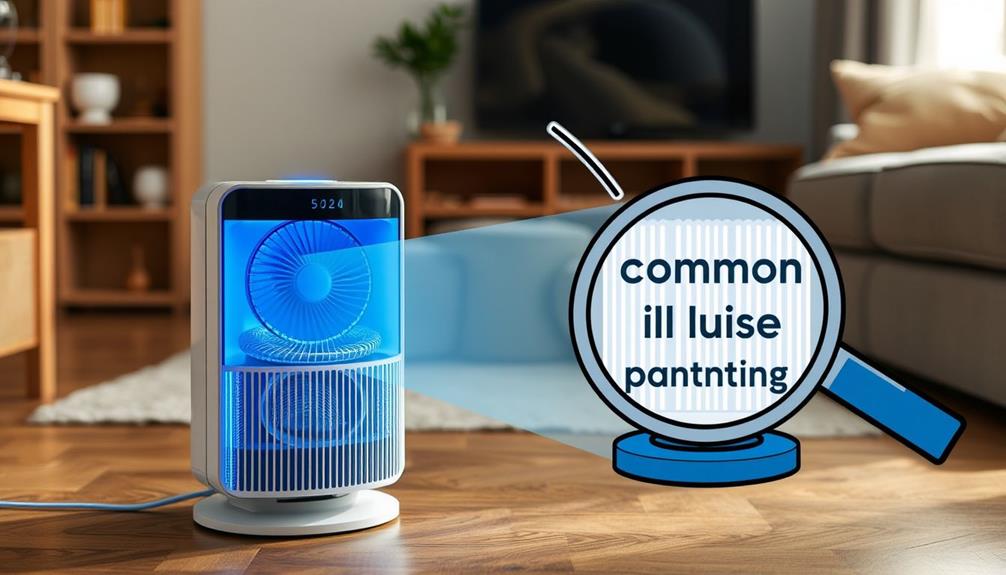
Unusual sounds from your air purifier can be more than just annoying; they often signal underlying issues that need attention. Understanding the common causes of these noises can help you address the problems effectively. Here are some typical noise causes:
| Noise Type | Possible Cause | Action Required |
|---|---|---|
| High-pitched | Fan blades rubbing or motor malfunction | Inspect and lubricate motor |
| Rattling | Loose components or debris inside the unit | Check for loose screws or debris |
| Static | Clogged filters causing restricted airflow | Replace filters immediately |
| Humming | Normal but may indicate motor issues if loud | Examine for excessive vibration |
Dust buildup on fan blades can lead to increased vibrations and noise, so regular cleaning is essential. If you hear persistent noises, it could point to serious motor issues or malfunctioning fans. Ignoring these sounds may lead to further damage, so it's best to investigate promptly. Keep an ear out for these signs to guarantee your air purifier operates smoothly and efficiently.
Solutions for Noise Reduction
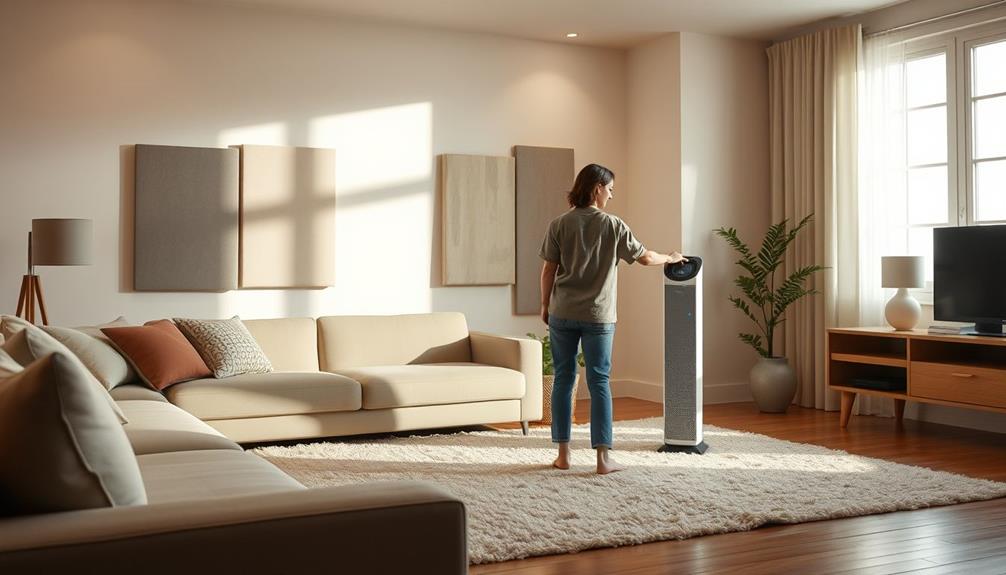
Many air purifier users experience noise issues, but there are effective solutions to help reduce these disturbances.
First, regularly replace your air filter as recommended by the manufacturer, typically every six months. Clogged filters restrict airflow, which can lead to increased noise.
Additionally, cleaning the fan blades and internal components monthly to remove dust buildup that disrupts smooth operation and raises noise levels is essential for maintaining efficiency, much like how proper maintenance practices can prevent plumbing issues in toilets.
Next, check for any loose screws or components inside the air purifier. Tightening these can minimize vibrations that contribute to unusual sounds.
If you find the purifier still noisy, adjust the fan speed settings; lowering the fan speed can greatly decrease noise output while maintaining effective air purification.
Maintenance for Quiet Operation
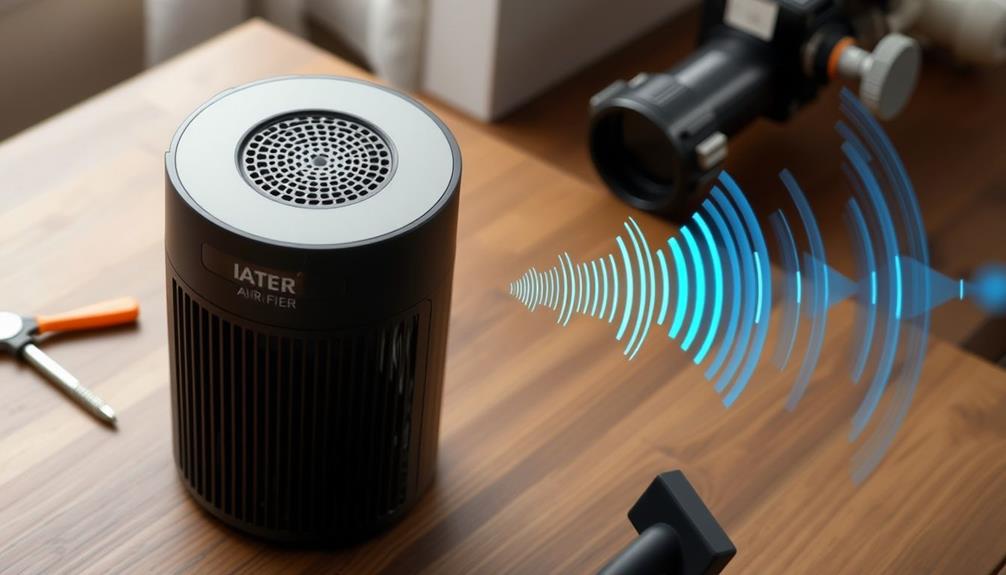
To enjoy a peaceful home environment, proper maintenance of your air purifier is fundamental for quiet operation. When your air purifier runs smoothly, it minimizes noise and enhances its efficiency.
Regular upkeep is akin to guaranteeing your pets receive the best care; just as dog health and nutrition is essential for your furry friends, maintaining your air purifier is important for your living space.
Here are some key maintenance tips to keep your unit operating quietly:
- Replace Filters Regularly: Change filters every six months to maintain ideal airflow. Clogged filters can create unwanted noise as air struggles to pass through.
- Clean Fan Blades Monthly: Dust buildup on fan blades can cause vibrations and increased noise. Regular cleaning guarantees smooth operation, helping to reduce sound levels.
- Tighten Loose Components: During routine checks, make sure to tighten any loose screws or parts. This simple step can eliminate rattling sounds, contributing to a more serene environment.
Additionally, lubricate moving parts as recommended by the manufacturer to decrease friction and avoid high-pitched noises.
Keeping your air purifier in a dust-free space and scheduling inspections every three to six months can also prevent noise-related issues.
When to Seek Professional Help
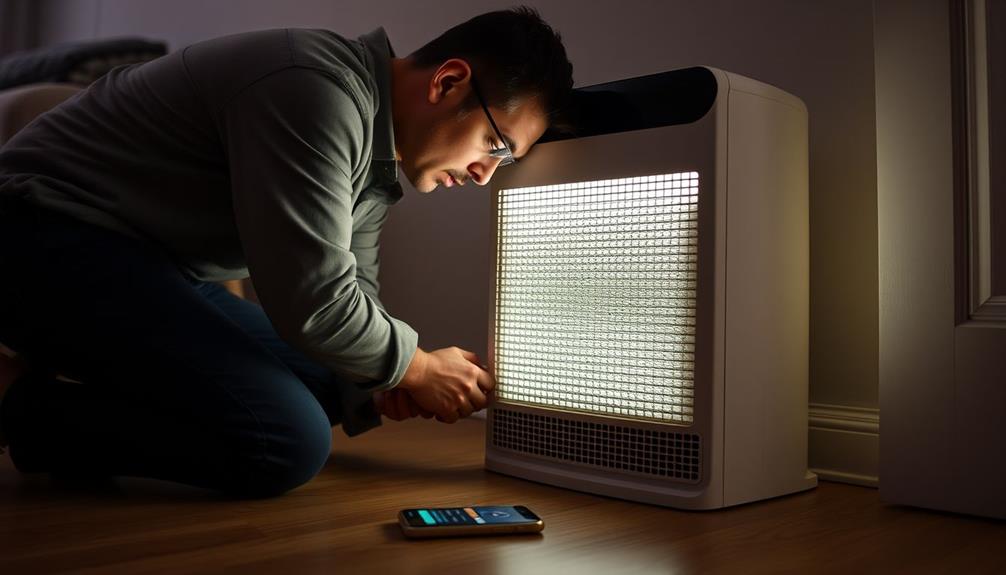
Even with regular maintenance, there may come a time when your air purifier needs professional attention. If you notice a continuous loud noise that doesn't go away after troubleshooting, this might signal a serious mechanical issue. Unusual sounds like banging or rattling could indicate internal damage or loose components, and these issues should be evaluated by a technician.
Additionally, if you experience decreased air quality or functionality alongside the noise, it's a strong sign that professional help is necessary. Electrical issues, such as sparks or burning smells, require immediate intervention for safety reasons. Older models, in particular, may benefit from an expert assessment if they're making frequent noise complaints and show reduced efficiency.
Here's a quick reference table to help you determine when to call for professional help:
| Noise Type | Possible Cause | Action Required |
|---|---|---|
| Continuous loud noise | Serious mechanical issue | Seek professional help |
| Banging or rattling | Internal damage or loose parts | Consult a technician |
| Performance issues | Decreased air quality | Schedule an assessment |
| Sparks or burning smell | Electrical issue | Immediate professional help |
Recommended Products
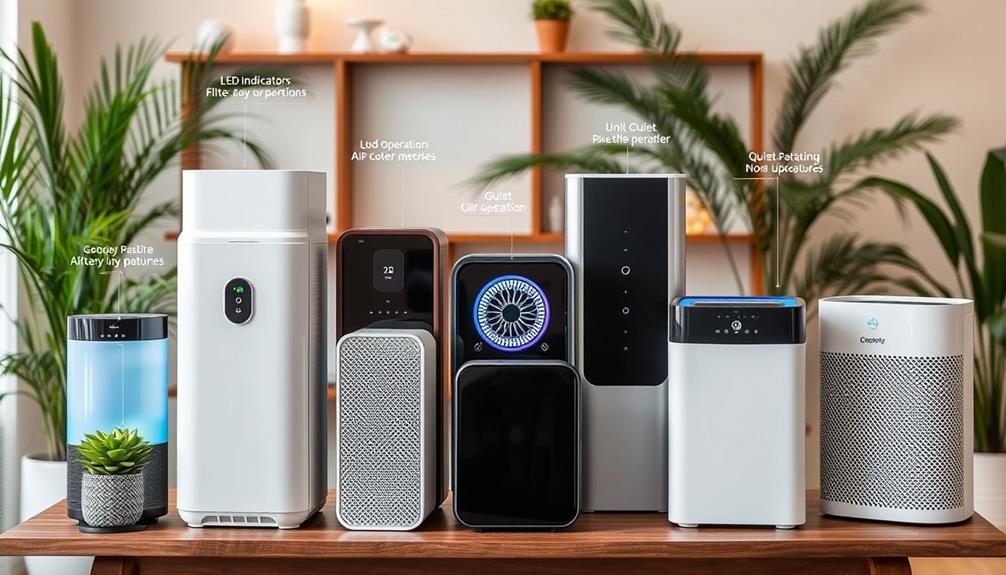
When selecting an air purifier, you'll find several excellent options tailored to different needs and environments. If your air purifier is making unusual noises, it might be time to contemplate an upgrade.
For instance, finding a model that effectively captures pet hair can greatly improve your indoor air quality, especially if you have furry friends at home, as noted by the importance of specialized tools for pet hair collection.
Here are three recommended products that can help you achieve cleaner air without added stress on the motor:
- MS601 Model: This silent HEPA air purifier operates at just 21 decibels, making it perfect for bedrooms or offices. With its H13 filter, it captures 99.97% of airborne particles, ensuring efficient air purification without the motor having to work harder.
- MSA3 HEPA Pet Air Purifier: Priced at $139.99, this model is designed specifically for pet owners. It effectively tackles pet hair and odors, so you won't have to deal with unpleasant smells or allergens in your home.
- MSA3S Smart Allergies Air Purifier: For $179.99, this air purifier offers Wi-Fi connectivity, allowing you to monitor and control it remotely. This feature is great for those with allergies, ensuring that the air stays clean without overworking the motor.
Choose one of these options for a quieter, more efficient air purification experience.
Conclusion
Now that you're aware of the various noises your air purifier might make, don't let those strange sounds disrupt your peace. Imagine trying to relax, only to be startled by a sudden clunk or hum. But fear not—by following our troubleshooting tips, you can restore tranquility to your space. Keep your air purifier well-maintained, and if the problems persist, don't hesitate to seek help. Your comfort and well-being depend on it—so take action before it's too late!
